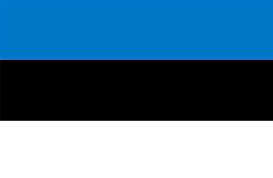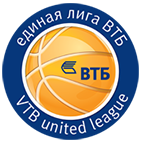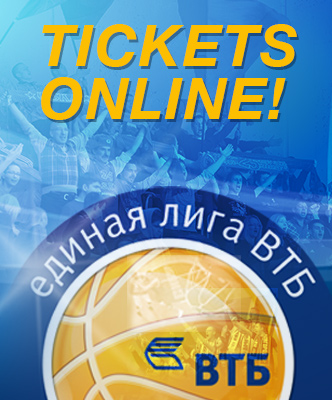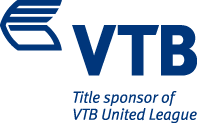25april
Sergey Ivanov Releases 2015-16 Russian Club Budgets

VTB United League honorary president Sergey Ivanov released the 2015-16 budgets of the league's nine Russian clubs today during a press conference at the Kremlin in Moscow.
CSKA remains in 1st place by size of budget: 2 billion, 759 million rubles. Khimki (1 billion, 634 million) and Lokomotiv-Kuban (1 billion, 102 million rubles) round out the top three. Also on the list are UNICS (797 million, 900 thousand rubles), Zenit (557 million, 375 thousand rubles), Nizhny Novgorod (353 million, 479 thousand rubles), Enisey (250 million, 147 thousand rubles), Avtodor (207 million, 399 thousand rubles) and Krasny Oktyabr (125 million, 275 thousand rubles).
The VTB United League budget was also released, coming to 384 million, 300 thousand rubles for the 2015-16 season.
- I want to note that no other sport has or is expected to have such transparency with regards to budgets, - said Ivanov. - This is a requirement for each of the Russian clubs. Why did the budgets go up? It's very simple: the exchange rate rose. Expenditures in rubles increased because the dollar became more expensive. As far as incomes, I'd note Zenit: this middle-of-the-road League club received 100 million rubles from FC Zenit. That's a common practice of cross-subsidizing around the world and I think it's a normal situation. Of course, we'd like for our clubs to make profit.
During the press conference (league president Sergey Kushchenko, general director Andrey Shirokov and deputy general director Ilona Korstin also participated), Sergey Ivanov answered pressing questions about the present and future of the VTB United League.
On the league's budget: The league's budget this season was 384 million rubles, which is pennies compared to other professional leagues. It was divided up in the following manner. The prize fund is 132 million rubles, taxes take 65 million rubles, 85 million goes to officiating, 15 million goes to insurance. Thus, 80% of the budget is used to take care of the clubs. Why do many want to play in the VTB United League? Because there's no need to use extra money. There are no fees. Our sponsors have remained the same, despite the financial difficulties in the country. That would be our title sponsor, VTB Bank, Sollers, Lukoil, Asteros, Academservice, Zarubezhneft. They were joined by SIBUR this season.
On the regular season: There were a lot of interesting games. Overall, I'd like for all the teams in the league to be more evenly matched. There would be even more competitive games and exciting finishes. You'd need the club budgets to be roughly similar, and, as we can see, that's not possible. CSKA, for example, plays in the final stages of two strong leagues and needs a deep bench. Khimki and Loko have shown a lot of promise. It's unfortunate that Moscow Region didn't make it out of the group in the Euroleague. Why am I saying all this? The teams in the league have different goals. CSKA has one; Khimki, Loko, UNICS and Zenit have another. They are similar, but expectations are a bit lower. The schedules are also completely different. All of that has to be taken into consideration when you evaluate a team's budget and potential. You always want plenty of intrigue and competitive games, but I can't ask the strongest clubs to lower their budgets. So, you need to ask other teams to increase their budgets, but they would need to earn money in order to do so, which is challenging.
On the foreign clubs: You can hear a lot of people question whether or not the league needs foreign teams. Would it be better to add a few Russian teams and hold a Russian championship? I don't agree. I'm confident that we need the foreign clubs. We have fairly strong teams competing in the league. Nymburk qualified for the playoffs this season; Astana did a year ago... I'll also tell you that the foreign clubs are the most efficient in the league when it comes to getting value for money. At the same time, even the league's leaders have trouble with these teams.
On the upcoming playoffs: I'm awaiting the conclusion of the final regular-season game between Zenit and Lokomotiv-Kuban, which will have an impact on the final standings. It could turn out that Loko and Khimki will meet in the quarterfinals. That would be a captivating series. Overall, the matchup between 4 and 5 seed is usually the most interesting series in the first round. To be honest, I don't expect any surprises from Nymburk vs. CSKA. Nizhny Novgorod is unlikely to get by UNICS, though anything is possible. It's up to the players, not the money at this stage. Avtodor is also capable of an upset. Then the semifinals and finals will be very intense!
By the way, like last season, the league mascot, Buba the Leopard, named after Evgeny Baburin, will be making some appearances. It's going to be interesting!
On the agreement with Match TV: We've signed a three-year contract with our TV partner in Russia. Per the agreement, at least 50 league games will be shown on Match TV's federal network each season. We need to keep working at this. One of the league's biggest requirements is a quality TV picture. If that condition is not met, fines can be assessed to clubs. Systemic issues can result in exclusion from the league, not just financial penalties. We need a good product.
On the league's makeup next season: A decision regarding next season's participating clubs will be made at the League Board meeting, as usual. It's possible that new clubs will ask to join the league. Parma Perm? The club needs a new arena and a new budget. Once that happens we can discuss.
On the FIBA - Euroleague conflict: I hope that Euroleague and FIBA can come to an agreement. We still need to wait on the decision from the European Commission regarding the complaints levied by both parties. If the conflict continues, the biggest threat is that club owners will ask a simple question: "What will get from playing in the FIBA Champions League, apart from expenses?" I repeat, I hope that the conflicting parties can find common ground. Otherwise everyone will suffer: both clubs and national teams.
On the relationship with the Russian Basketball Federation: The Federation should not have a dominant position. There are two professional leagues in the country: KHL and VTB League. The leagues and federations should be partners and help and complement each other. The federations need to work on developing mass participation in sports and youth infrastructure, as well as prepare the national teams. The league and clubs, for their part, develop professional basketball and develop players for the national teams. Right now we have an excellent partnership with the Russian Basketball Federation. We don't compete on anything or try to be first. Everyone takes care of their own business.












































